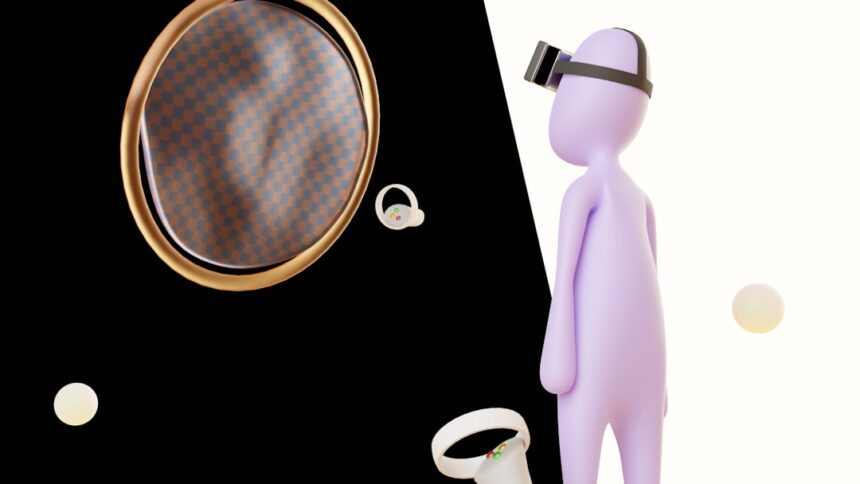Depersonalization and derealization are psychological phenomena that can leave you feeling detached from your own thoughts, feelings, or sense of self. When you experience depersonalization, it may feel as though you are an observer of your own life, as if you are watching yourself from a distance. This can lead to a sense of disconnection from your body or emotions, making it challenging to engage fully with your experiences.
On the other hand, derealization involves a sense of unreality regarding your surroundings. You might perceive the world around you as strange or dreamlike, as if everything is happening in a movie rather than in real life. These experiences can be unsettling and disorienting, often leading to confusion and anxiety.
While they can occur in response to stress or trauma, they can also manifest without any clear trigger. Understanding these phenomena is crucial for recognizing their impact on your mental health and well-being. Both depersonalization and derealization can occur independently or together, forming a complex interplay that can significantly affect your perception of reality.
Key Takeaways
- Depersonalization and derealization are dissociative disorders that involve feeling disconnected from oneself and the world around them.
- Common symptoms include feeling like an outside observer of one’s thoughts and actions, and experiencing a sense of unreality or detachment from the environment.
- Causes of depersonalization and derealization can include trauma, stress, anxiety, and substance abuse.
- These disorders can affect daily life by causing difficulties in relationships, work, and overall functioning.
- Seeking professional help is important for diagnosing and treating depersonalization and derealization, and there are various treatment options and coping strategies available.
Common Symptoms of Depersonalization and Derealization
The symptoms of depersonalization and derealization can vary widely from person to person, but there are some common experiences that many individuals report. If you find yourself feeling detached from your thoughts or emotions, you might be experiencing depersonalization. This could manifest as feeling like you are watching yourself in a movie or feeling as though your body does not belong to you.
You may also notice a lack of emotional response to situations that would typically elicit strong feelings, leading to a sense of numbness. In contrast, derealization symptoms often involve a distorted perception of your environment. You might feel as though the world around you is foggy or unreal, with familiar places appearing strange or unfamiliar.
Colors may seem muted, and sounds may feel distant or distorted. These experiences can lead to significant distress, as they challenge your understanding of reality and can make it difficult to navigate daily life. Recognizing these symptoms is the first step toward understanding what you are going through and seeking appropriate help.
Causes of Depersonalization and Derealization

The causes of depersonalization and derealization are complex and multifaceted. Often, these experiences are linked to extreme stress or trauma. If you have faced significant life events such as abuse, accidents, or the loss of a loved one, your mind may resort to depersonalization as a coping mechanism.
This dissociative response allows you to distance yourself from overwhelming emotions and experiences, providing temporary relief from psychological pain. Additionally, certain mental health conditions can contribute to the development of these symptoms. Anxiety disorders, depression, and post-traumatic stress disorder (PTSD) are commonly associated with depersonalization and derealization.
Substance use can also play a role; for instance, the use of hallucinogenic drugs may trigger these sensations in some individuals. Understanding the underlying causes is essential for addressing the symptoms effectively and finding appropriate treatment options.
How Depersonalization and Derealization Affect Daily Life
| Impact | Effects |
|---|---|
| Emotional Impact | Feelings of detachment, numbness, and emotional blunting |
| Social Impact | Difficulty connecting with others, feeling isolated |
| Work/School Impact | Decreased productivity, difficulty concentrating |
| Physical Impact | Heightened anxiety, panic attacks, and physical symptoms |
| Quality of Life | Impaired ability to enjoy activities and relationships |
Living with depersonalization and derealization can significantly impact your daily life and overall functioning. You may find it challenging to engage in social situations or maintain relationships due to feelings of disconnection from yourself and others. This detachment can lead to isolation, as you might struggle to relate to friends or family members who do not understand what you are experiencing.
Everyday tasks may become overwhelming when you feel detached from reality, making it difficult to concentrate at work or school. Moreover, the emotional toll of these experiences can lead to increased anxiety and depression. The constant struggle with feelings of unreality can create a cycle of distress that affects your self-esteem and overall mental health.
You may find yourself questioning your identity or purpose, leading to further feelings of confusion and despair. Recognizing how these symptoms affect your life is crucial for seeking help and finding ways to cope effectively.
Diagnosing Depersonalization and Derealization Disorder
Diagnosing depersonalization and derealization disorder typically involves a comprehensive evaluation by a mental health professional. If you suspect that you are experiencing these symptoms, it is essential to seek help from a qualified therapist or psychiatrist who can assess your situation accurately. The diagnostic process often includes discussing your symptoms in detail, exploring their duration and frequency, and ruling out other potential causes.
To be diagnosed with depersonalization/derealization disorder, your symptoms must cause significant distress or impairment in social, occupational, or other important areas of functioning. The clinician may also consider whether these experiences are occurring in the context of another mental health condition or substance use. A thorough assessment will help ensure that you receive an accurate diagnosis and appropriate treatment tailored to your needs.
Treatment Options for Depersonalization and Derealization

Treatment for depersonalization and derealization often involves a combination of therapeutic approaches tailored to your specific needs. Cognitive-behavioral therapy (CBT) is one effective method that helps you identify and challenge negative thought patterns associated with these experiences. Through CBT, you can learn coping strategies to manage anxiety and reduce feelings of detachment.
In some cases, medication may be prescribed to address underlying mental health conditions contributing to depersonalization and derealization. Antidepressants or anti-anxiety medications may help alleviate symptoms and improve overall functioning. It is essential to work closely with your healthcare provider to determine the most appropriate treatment plan for your situation.
Coping Strategies for Managing Depersonalization and Derealization
In addition to professional treatment, there are several coping strategies you can employ to manage depersonalization and derealization in your daily life. Mindfulness practices can be particularly beneficial in grounding yourself in the present moment. Techniques such as deep breathing exercises, meditation, or yoga can help you reconnect with your body and emotions, reducing feelings of detachment.
Engaging in activities that promote self-awareness and self-expression can also be helpful. Journaling about your experiences or creating art can provide an outlet for processing your feelings and thoughts. Additionally, maintaining a strong support network of friends or family members who understand what you’re going through can make a significant difference in managing these symptoms.
The Link Between Depersonalization and Derealization and Other Mental Health Disorders
Depersonalization and derealization often coexist with other mental health disorders, creating a complex interplay that can complicate diagnosis and treatment.
Similarly, those with depression may find themselves feeling disconnected from their emotions as part of their overall experience.
Understanding this link is crucial for developing effective treatment plans that address all aspects of your mental health. A comprehensive approach that considers co-occurring disorders will provide a more holistic understanding of your experiences and lead to more effective interventions.
Understanding the Difference Between Depersonalization and Derealization
While depersonalization and derealization are often discussed together, it is essential to recognize their distinct characteristics. Depersonalization primarily involves a disconnection from oneself—your thoughts, feelings, or sense of identity may feel foreign or unreal. In contrast, derealization pertains to a disconnection from the external world; familiar surroundings may appear strange or distorted.
Understanding these differences can help you articulate your experiences more clearly when seeking help or discussing your symptoms with others. It also emphasizes the importance of addressing both aspects in treatment to achieve a more comprehensive understanding of what you’re going through.
The Importance of Seeking Professional Help for Depersonalization and Derealization
If you find yourself struggling with depersonalization or derealization, seeking professional help is crucial for regaining control over your life. These experiences can be distressing and isolating, but you do not have to navigate them alone. A mental health professional can provide support, guidance, and effective treatment options tailored to your unique situation.
By reaching out for help, you take an important step toward understanding your experiences better and developing coping strategies that work for you. Remember that seeking help is not a sign of weakness; it is an act of courage that can lead to healing and improved well-being.
Tips for Supporting Someone with Depersonalization and Derealization
If someone close to you is experiencing depersonalization or derealization, offering support can make a significant difference in their journey toward healing.
Validate their experiences by acknowledging how distressing these sensations can be.
Encourage them to seek professional help if they haven’t already done so; gently remind them that they do not have to face this alone. Additionally, educate yourself about depersonalization and derealization so that you can better understand what they are going through. Your support can provide comfort during challenging times and foster a sense of connection that is vital for their recovery journey.
In conclusion, understanding depersonalization and derealization is essential for both those who experience these phenomena and their loved ones. By recognizing the symptoms, causes, and treatment options available, you empower yourself or someone else on the path toward healing and recovery. Remember that seeking help is a vital step in managing these complex experiences effectively.
Depersonalization and derealization are common symptoms often associated with dissociative disorders, which can significantly impact an individual’s perception of reality and self. For those interested in exploring this topic further, an insightful article can be found on Unplugged Psych, a resource dedicated to understanding various psychological phenomena. This article delves into the intricacies of dissociative disorders and provides a comprehensive overview of their symptoms and potential treatments. To read more about this, visit the Unplugged Psych website.
LEARN MORE About Unmasking the Mysteries Behind Depersonalization and Derealization
FAQs
What is depersonalization and derealization?
Depersonalization is a mental health condition where a person feels detached from themselves, as if they are observing themselves from outside their body. Derealization is a similar condition where a person feels detached from their surroundings, as if the world around them is unreal.
What disorder are depersonalization and derealization common symptoms of?
Depersonalization and derealization are common symptoms of depersonalization-derealization disorder (DDD), which is a type of dissociative disorder.
What are the symptoms of depersonalization-derealization disorder?
Symptoms of depersonalization-derealization disorder include feeling detached from oneself, feeling like an outside observer of one’s thoughts and actions, feeling like the world is unreal or distorted, and experiencing emotional numbness.
What are the potential causes of depersonalization-derealization disorder?
The exact cause of depersonalization-derealization disorder is not fully understood, but it is believed to be related to a combination of biological, psychological, and environmental factors. Trauma, stress, and certain personality traits may contribute to the development of the disorder.
How is depersonalization-derealization disorder treated?
Treatment for depersonalization-derealization disorder may include therapy, such as cognitive-behavioral therapy (CBT) or dialectical behavior therapy (DBT), as well as medication, such as antidepressants or anti-anxiety medications. It is important for individuals with this disorder to seek professional help for an accurate diagnosis and appropriate treatment plan.




